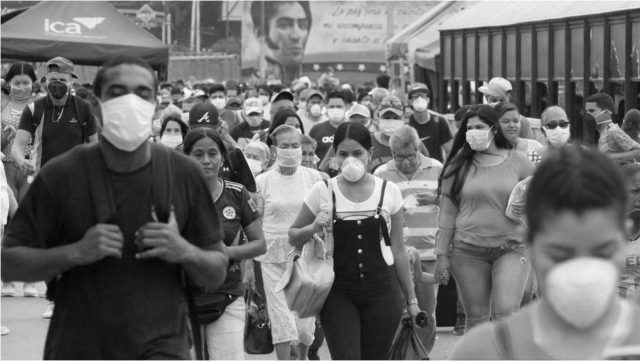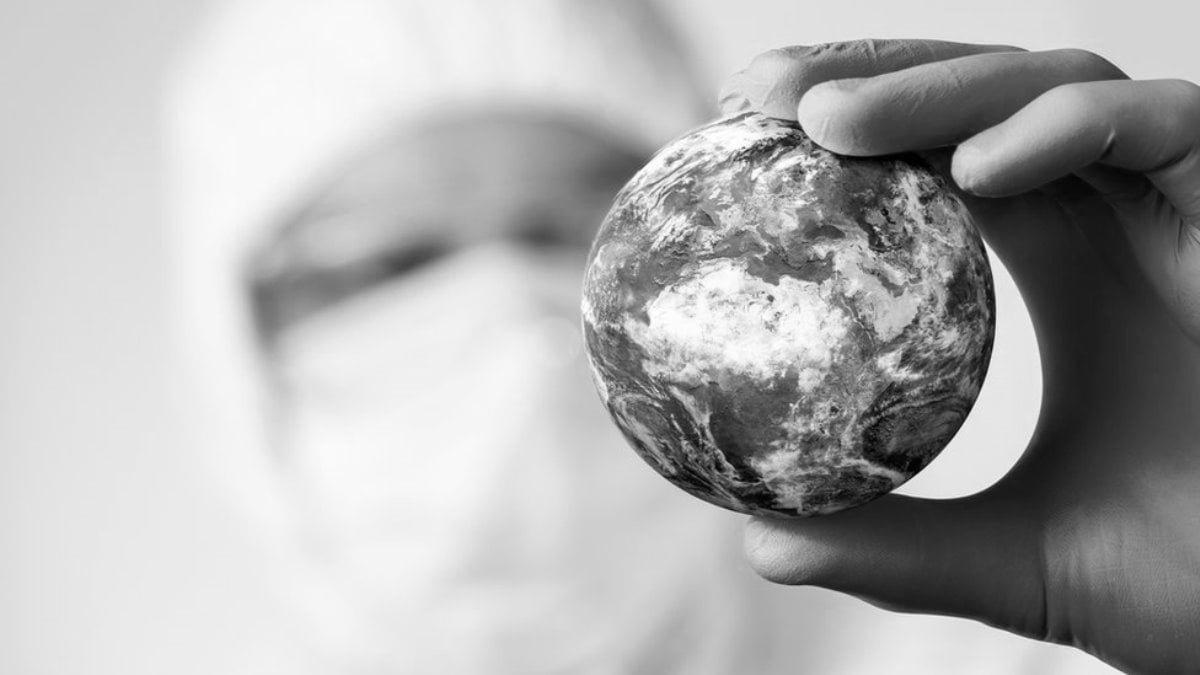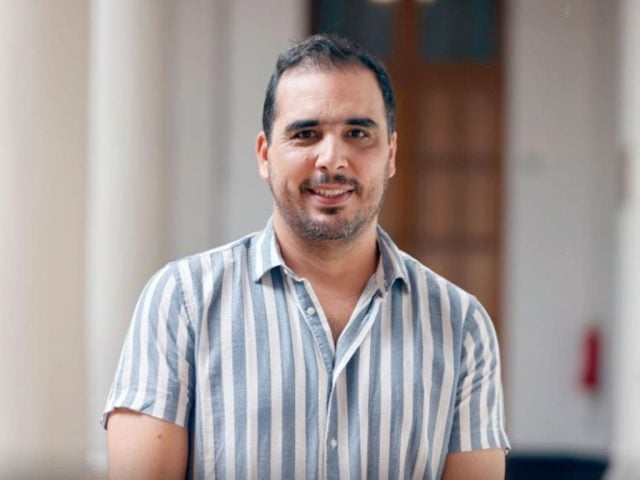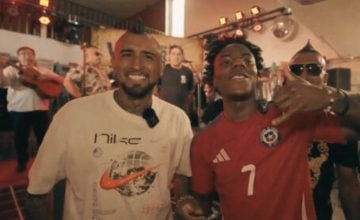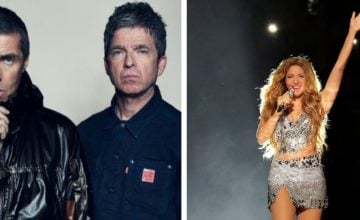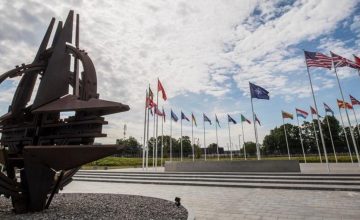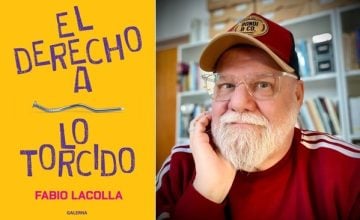«The pandemic caused by COVID-19 is one of the most important challenges that we have faced in our life. It goes beyond any humanitarian crisis, with severe health and socioeconomic consequences». Those words were said 10 months ago – on April 8, 2020 – by the Secretary General of the United Nations, António Guterres. He pronounced them three months after registering the first fatal victim, and already with many countries in social quarantine.
No one, mentally or psychologically, is prepared to unexpectedly face a health emergency like the one we are currently experiencing. Fortunately, in Venezuela, prevention measures were taken on time and a social quarantine was decreed, without thinking it twice, on March 13. This prevented the country from having, today, alarming numbers as is the case in Colombia, Ecuador, Peru, Chile and especially Brazil.
Among the Venezuelan’s reactions, two stand out: those who radically took all the safety and prevention recommendations to heart; and another group that prefers to ignore the measures. The latter put at risk not only their health but also that of their families and the entire country.
However, everyone lives quarantine today in their own particular style. Everyone suffers from their own problems and finds the positive and the negative sides in the situation. After almost 11 months of isolation, in these lines we will tell the experience of a group of Venezuelans of different ages and professions, personally told by each one of them.
Verónica Jiménez, 16 years old, student, Barquisimeto, Lara state. «It has been frustrating»
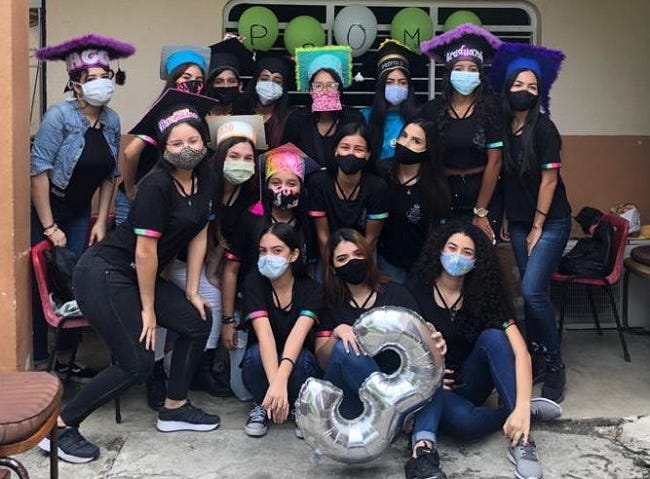
My routine changed completely, in every way. I went from going to high school every day, my activities in the church, time with my friends, going out with my family on weekends; to be locked up at home from Monday to Sunday. It has been frustrating, because although we have shared many activities at home, there are days when I can’t find what to do, I try to turn my routine around but it is difficult.
This year I am graduating from high school and I still don’t know if we will have a graduation ceremony. In the end, maybe they will hand my title over to my parents through the window of an office. Just a few of our classmates met a few days ago so as to be together for a while, and they were not all given permission, not even because it was at the home of a classmate and with all the security measures. I understand that everything is for our own good, but even if I understand it, it is still frustrating.
Tomás Pérez, 18 years old, student, Maracay, Aragua state. «This is not the new lifestyle I was hoping for»
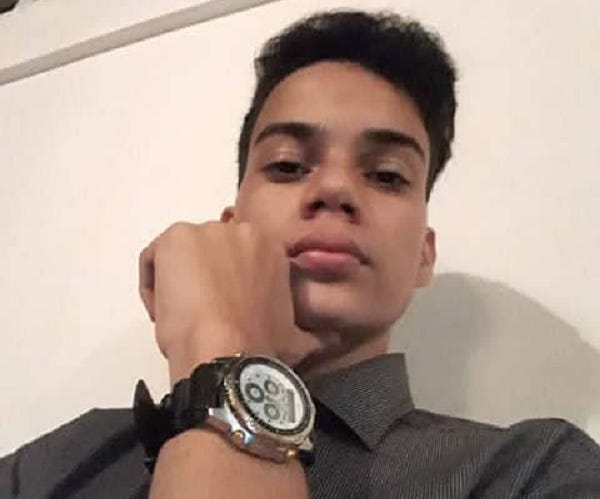
The quarantine? It’s frustrating, because just the week it was decreed, I was going to start to study medicine at the Francisco de Miranda University in Coro (Falcón, northwest of the country). I was going to start a new lifestyle, to live alone in another city, without my parents … and suddenly everything fell apart. I had months with a monotonous routine, wanting to start my career and I was happy because the time had come, but my plans didn’t come through .
I do not blame the quarantine, because I understand that it is necessary, but it is not the new lifestyle that I expected. In the meantime, I’ve tried to tidy things up, eat healthier, and exercise at home, because now we don’t even get together as a family every weekend like we used to do; and among friends I share with a small group and only on WhatsApp and social networks.
Scarlet Rodríguez, 33 years old, journalist, Caracas. «I have put my capacity as a mother, friend and woman to the test»
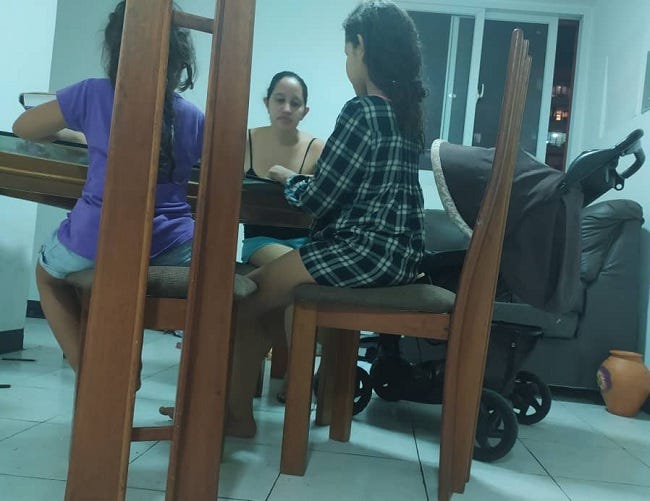
I am a mother and I live with my two girls, ages 7 and 10, and my six-month-old baby. It is necessary to rescue, among the good things, the time of exclusive dedication with my baby and that I have put my capacity as a mother, friend and woman to the test. I have been able to attend different trenches at the same time: food, breastfeeding, parenting, homework, classes, recreation, work … things that I thought I could not do at the same time. I have strengthened ties with my daughters and have more communication and rapport with them.
But, the economic issue has been very negative, because I work as a freelance consultant and due to the quarantine many companies believe that it is not worth hiring at this time. That has limited my income. I do not have enough money for all the medical consultations, to buy food and medicines as before. Besides, my parents are older, they live in another state and they cannot see their granddaughters often, who were their biggest distraction, especially for my mother who suffers from Alzheimer’s. In short, the worst thing is the uncertainty of living in constant stress without knowing what will happen next.
Rafael Pérez, 47 years old, taxi driver, Barquisimeto, Lara state. «We have made ourselves a sort of armour in this quarantine»
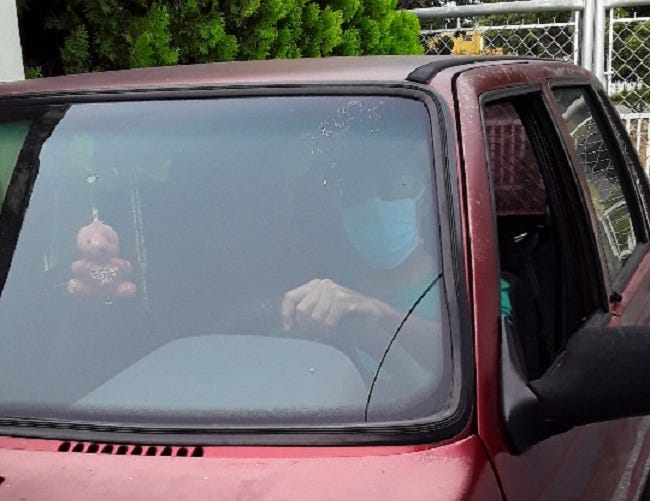
I feel upset by the economic situation. I have had to open ‘the compass’ and look for other forms of survival, adapt to the situation, more out of attitude than to have everything resolved. I have had to resort to selling on the Internet and social networks. This is how I have managed to survive with my wife and two children, although not as I wanted. And also thanks to the help of my two younger brothers, one of them, who is out of the country. But there is not much room to maneuver, we have six years ‘been hit right, left and center’ with what is happening with the economy, inflation and the daily blackouts.
We have made ourselves a sort of armour and we have tried to bring out the best within the worst. And although the Government has done moderately well, it was the gasoline shortage that was the cherry on the cake, because they (the Government) managed to ‘lock up’ a population with little common sense like the Venezuelan people. Thank God it was like that, because the public health service would not withstand a massive outbreak.
María Guerrero, 37 years old, lawyer, civil servant, Caracas. «Now I work by videoconference»
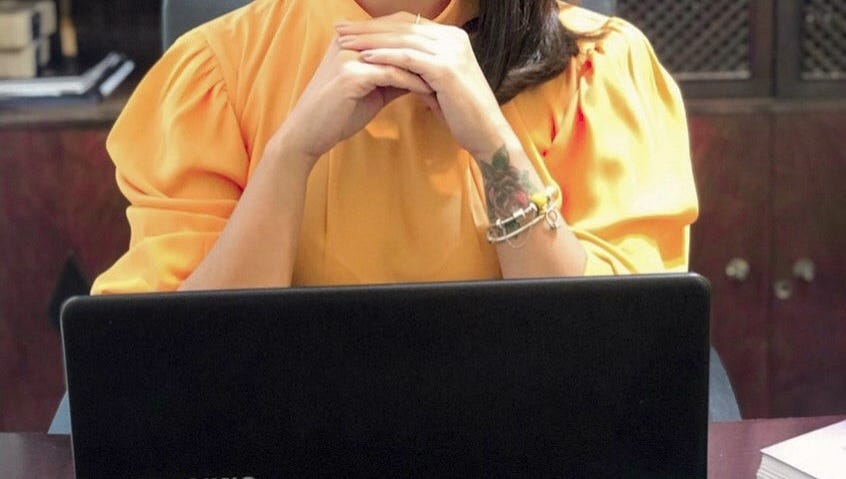
I have had to adapt, work from home. I brought home my laptop, Internet and a printer and that has allowed me to fulfill my obligations. I have had to go to my workplace very little because I decided to self-quarantine. Now I work by videoconference, all the legal documents I send by email to the office. This is mainly due to the fact that my father suffers from an almost terminal illness and we have taken radical and extreme measures, because getting infected would be lethal for him.
Before, I used to go several times a week to attend to him, now I take turns with my brother every 15 days, because it turns out that he (my father) found himself stranded in Caracas, since he lives in Coro (Falcón) and since February he has not been able to return to his house. Thank God, with medicines we have no problems because we had a stock that, I hope, will last until everything is normalized, even if it is that so-called relative normality.
Moisés Henríquez, 34 years old, member of the National Guard, Caracas. «In my house the measures are strict»
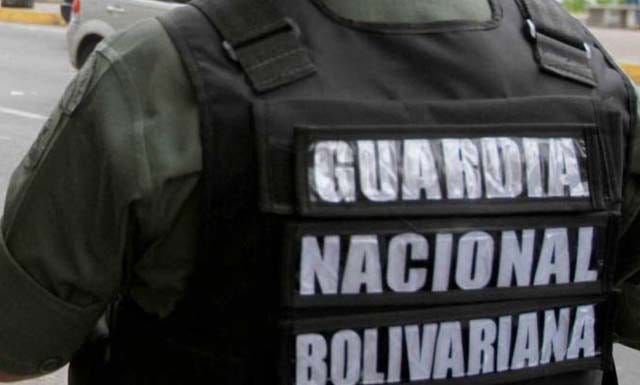
I live with my wife and my three month old son. At home, everything changed a lot, because I can’t take my son down to the park, we have to play with him in the living room or in the hallway of the apartment where we live. My wife liked to go for a walk on the weekends, we can’t do it either. We have had to adapt for the safety of the whole family. Before, I used to visit my parents, now I can’t even send food to them like I always did, due to restrictions.
Also, because of work I don’t have time either. I am on the street every day and as soon as I arrive at the apartment, I disinfect myself: I take off my clothes, put them in the washing machine, I take a shower right away. I do not let my wife or son have contact with me until I finish cleaning myself. In my house the measures are strict, as well as in my work.
Eloína Salcedo, 60 years old, retired and entrepreneur. Caracas. «I can’t go out because of the quarantine»
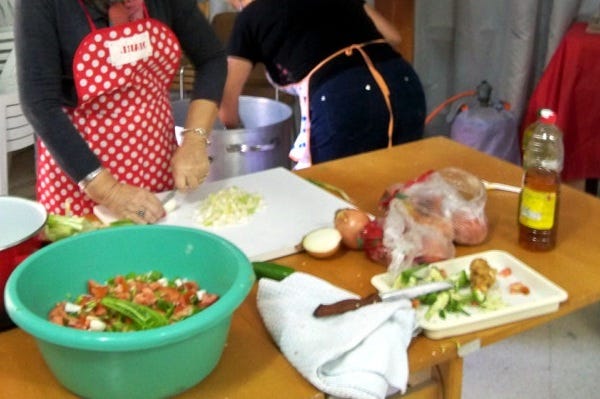
I live in the parish 23 de Enero and here everything is very strict and radical. Prevention measures must be respected. Since the quarantine began, I have not been able to leave Caracas to visit my mother in Aragua due to lack of transportation. Nor have I been able to meet my brothers or go to the apartment that I have on the beach. I have been able to visit my other brothers right here in Caracas on very few occasions.
That is why I have dedicated more time to my house, to give it more warmth, clean it, go to bed when I want. Distraction is my job, I have a small business where I sell breakfasts and snacks, but nobody goes there without masks, or without putting antibacterial gel on their hands. Now everything is ‘to go’ because they can’t even sit at the tables. It has been very hard, I only pray to God that everything will be over before we think.
Delfina Linárez, 69 years old, retired, Petare, Miranda state. «I take great care of myself because I recovered from breast cancer»
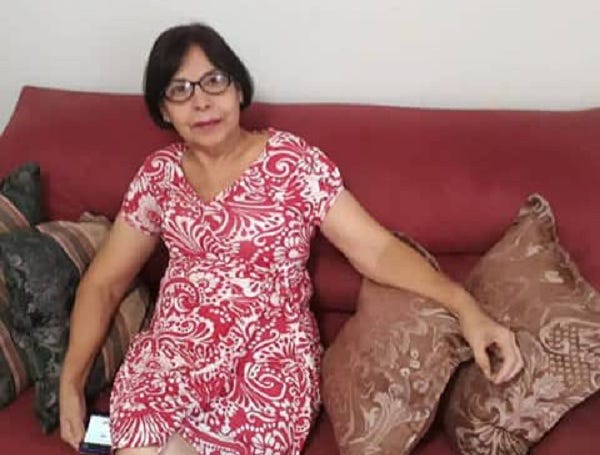
I didn’t use to go out much, but right now it’s extreme. I’ve only been out about five times to buy food and throw away the garbage. Before, I used to go to the market and talk with my friends in the building. I used to receive the box of food (Clap) personally and now, ten months have passed since the last time I did it. I don’t even visit my neighbors in their apartments. I take great care of myself because I recovered from breast cancer. Also, my daughter and grandson don’t want me to go out because I can get sick.
Before, I distracted myself with the sewing machine, but now I can’t do that either, because I don’t have thread and I used to buy it in Petare, but I’m not going there, and neither can my daughter or my grandson. I even spent my birthday in quarantine, I couldn’t go out to eat like every year or visit my brothers. It bothers me a lot, but I understand that it is the best for everyone.
Jesús Núñez, 69 years old, merchant, Maracay, Aragua state. «I haven’t seen my children in almost a year»
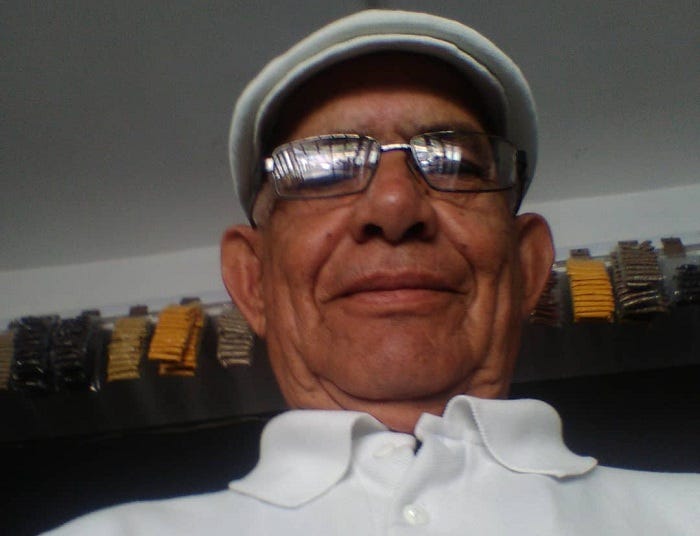
I just don’t leave the urbanization where I live. Before, I used to go to a ‘Grandparents’ House’ (Casa de los Abuelos), to the equestrian club, to watch baseball games in a nearby field… I can’t do any of that anymore. All I do is go to work in the winery very early and until noon. There, I wear face masks and since I don’t have gloves, I put on plastic bags and change them every so often. But, I can’t stop working, because the pension is not enough for anything and without money, I don’t eat.
In addition, I see that many people do not follow the recommendations, so I try to keep my distance from everyone. Before, I even played dominoes with my friends every day until nine at night, but I decided to stop meeting as a group. Now, I am home at seven at night at the latest. But, what I regret the most, is not being able to visit my children in Caracas. It is impossible to get there or for them to come to see me.
And it is precisely that attitude and part of the words of Jesús Núñez that must be kept in mind. «I see that many people do not follow the recommendations in full quarantine, so I try to keep my distance from everyone». The COVID-19 disease has proven not to be a game, and with more than 100 million infected in the world and on the way to 500 thousand deaths, the words of the director general of the World Health Organization (WHO), Tedros Adhanom Ghebreyesus, must be taken into account: «The worst is yet to come (…) A year has passed since the outbreak of the new coronavirus and the pandemic is far from over«.
